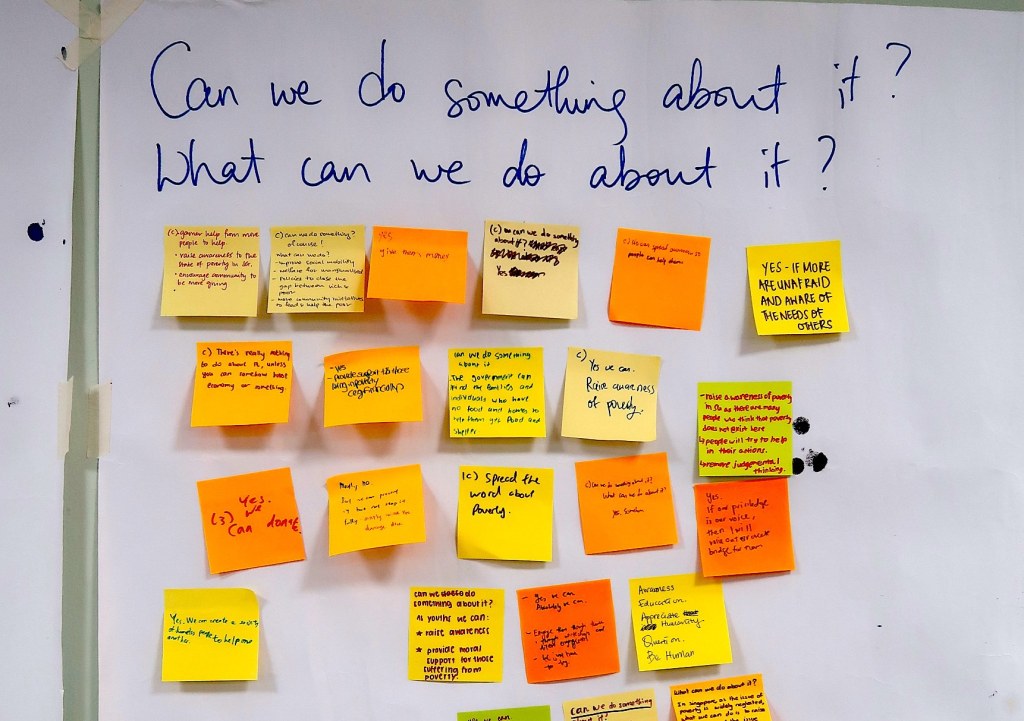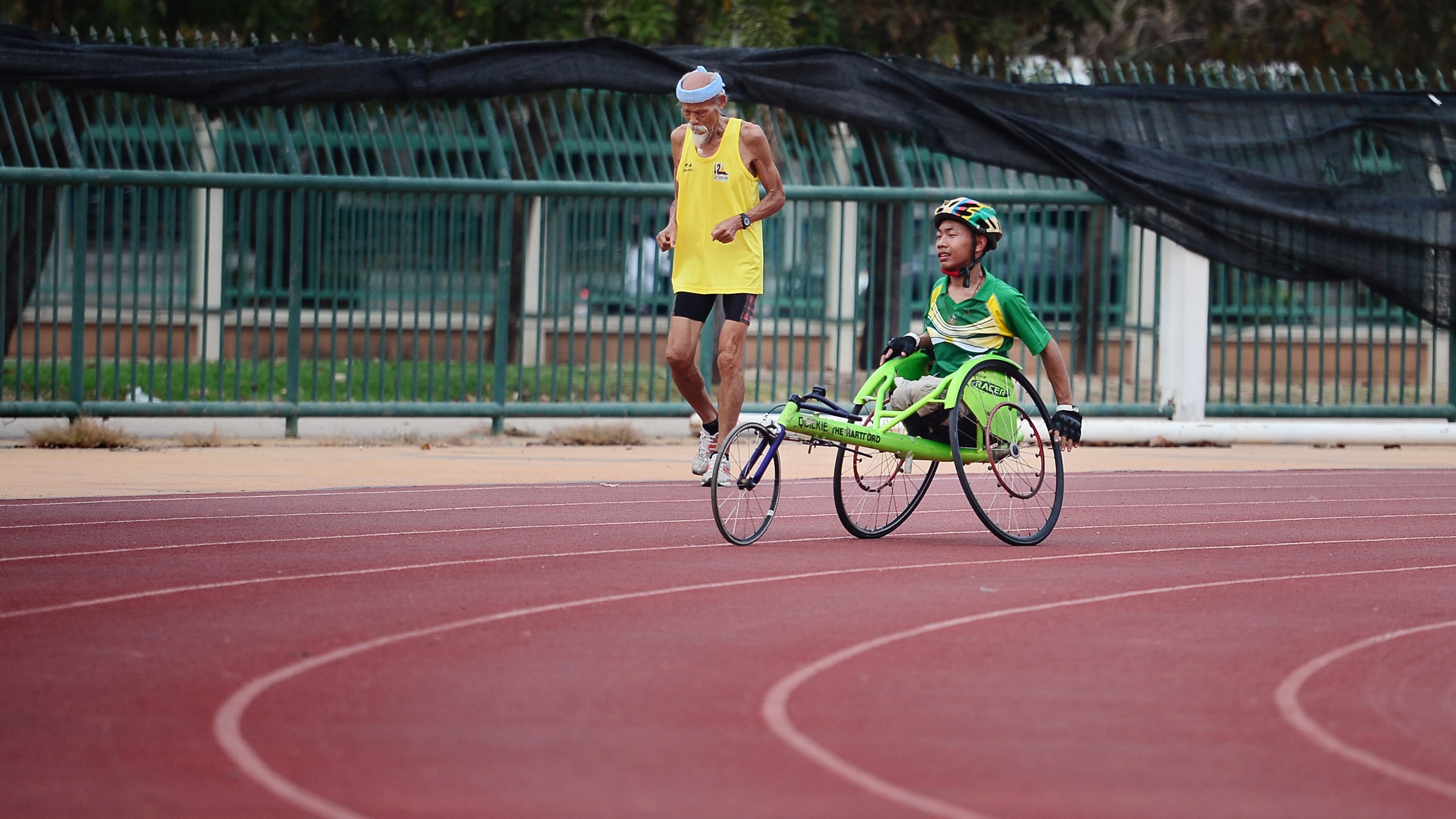Difference between revisions of "Disability/Landscape of Needs and Gaps"
| Line 2: | Line 2: | ||
<big>'''What this is:''' This is a sub-page of the [[Disability]] landing page dedicated specifically to mapping out the range of diverse needs and related service / policy gaps of the disability sector.</big> | <big>'''What this is:''' This is a sub-page of the [[Disability]] landing page dedicated specifically to mapping out the range of diverse needs and related service / policy gaps of the disability sector.</big> | ||
| − | <big>'''Aims:''' To democratise knowledge production so that everyone can contribute information, discuss key issues and expand knowledge about unmet needs and ideas on how to address them. We hope this collective contribution will result in a more comprehensive, robust and up-to-date knowledge base; generate productive dialogue that respects diversity of views; and spur collaborative solutions | + | <big>'''Aims:''' To democratise knowledge production so that everyone can contribute information, discuss key issues and expand knowledge about unmet needs and ideas on how to address them. We hope this collective contribution will result in a more comprehensive, robust, and up-to-date knowledge base; generate productive dialogue that respects the diversity of views; and spur collaborative solutions.</big> |
| − | <big>'''Approach:''' The Institute of Policy Studies began with a basic environmental scan and literature review of key reports, research and news articles to take stock of available information. We | + | <big>'''Approach:''' The Institute of Policy Studies began with a basic environmental scan and literature review of key reports, research and news articles to take stock of available information. We subsequently experimented with [[Civic Experiment & Wiki Challenge|wikithons]] to engage students and members of the public to populate the pages. [[Disability Community Network|Roundtable discussions with disability sector stakeholders]] were then organised so as to get feedback on whether the information collated was comprehensive or adequate, and more importantly, to deliberate on service and policy gaps--which are evaluative assessments that may not have easy consensus, and also depend on a sound understanding of what is causing those gaps. Disabled persons, caregivers, NGOs, policymakers and researchers participated in these sessions.</big> |
| − | <big>The | + | <big>The basic logic involves</big>: |
| − | * <big>Needs | + | * <big>'''Identifying Needs''': What are the broad categories and what are the specific needs that fall within them? How are these needs related to one another? (Needs Assessment)</big> |
| − | * <big>Resources | + | * <big>'''Mapping Resources & Assets''': What existing services and resources are available to meet each of the specific needs identified? (Asset Mapping)</big> |
| − | * <big> | + | * <big>'''Gaps and Reasons for them''': How adequately do existing services and resources meet those needs? What do these gaps exist? (Gap Analysis)</big> |
| − | * <big>Ideas and solutions | + | * <big>'''Ideas and solutions''': What specific solutions or ideas can address the causes of those gaps? (Ideation)</big> |
<big>'''Who can contribute:''' Anyone, as long as you would like to help articulate what the gaps in the disability sector are (or at least, a lead) and can keep an open mind to changes in what you know.</big> | <big>'''Who can contribute:''' Anyone, as long as you would like to help articulate what the gaps in the disability sector are (or at least, a lead) and can keep an open mind to changes in what you know.</big> | ||
[[File:Arisa-chattasa-yrLnBqnsn84-unsplash.jpg|thumb|397x397px|Disability comes in many types, forms and degrees. This page presents a broad overview of those issues and is not intended to be overly specific.]] | [[File:Arisa-chattasa-yrLnBqnsn84-unsplash.jpg|thumb|397x397px|Disability comes in many types, forms and degrees. This page presents a broad overview of those issues and is not intended to be overly specific.]] | ||
Revision as of 07:47, 26 March 2020
What this is: This is a sub-page of the Disability landing page dedicated specifically to mapping out the range of diverse needs and related service / policy gaps of the disability sector.
Aims: To democratise knowledge production so that everyone can contribute information, discuss key issues and expand knowledge about unmet needs and ideas on how to address them. We hope this collective contribution will result in a more comprehensive, robust, and up-to-date knowledge base; generate productive dialogue that respects the diversity of views; and spur collaborative solutions.
Approach: The Institute of Policy Studies began with a basic environmental scan and literature review of key reports, research and news articles to take stock of available information. We subsequently experimented with wikithons to engage students and members of the public to populate the pages. Roundtable discussions with disability sector stakeholders were then organised so as to get feedback on whether the information collated was comprehensive or adequate, and more importantly, to deliberate on service and policy gaps--which are evaluative assessments that may not have easy consensus, and also depend on a sound understanding of what is causing those gaps. Disabled persons, caregivers, NGOs, policymakers and researchers participated in these sessions.
The basic logic involves:
- Identifying Needs: What are the broad categories and what are the specific needs that fall within them? How are these needs related to one another? (Needs Assessment)
- Mapping Resources & Assets: What existing services and resources are available to meet each of the specific needs identified? (Asset Mapping)
- Gaps and Reasons for them: How adequately do existing services and resources meet those needs? What do these gaps exist? (Gap Analysis)
- Ideas and solutions: What specific solutions or ideas can address the causes of those gaps? (Ideation)
Who can contribute: Anyone, as long as you would like to help articulate what the gaps in the disability sector are (or at least, a lead) and can keep an open mind to changes in what you know.
HOW TO USE THIS PAGE PROPERLY
- Things will be messy and always be a work in progress. Deliberation is always ongoing and some issues might be more contentious, or resolved than others. Do not expect everything to be correct right from the start - everyone is in the process of getting things right. Theories of change shift depending on what where we are in terms of progress and what we want to be held accountable to.
- Although each issue is explored separately, all parts are in motion. Hence, each issue should be seen together/in tandem with others.
- This knowledge base is consolidated from a variety of sources - books, newspaper articles, reports but above all, people who have taken the trouble to contribute to it. Unlike a formal report which is authored by few authoritative people, this knowledge base is the product of all who take the trouble to contribute to it.
- Structure and organisation is needed even though the issue is complex. Disability, like most social issues, is complex with many intertwining and competing factors. Nevertheless, if we are to deal with the matters at hand, some level of structure and organisation is necessary. Starting from the big picture (see below), click on individual areas of interest and you will be guided to explore specific facets.
- You make the call on what information counts as credible and for what purpose. Any information that this wiki contains at any particular time is a work-in-progress. Especially with contentious matters, due diligence should be done to check the sources that are cited. Inputs that are not cited may not be wrong, and likely require deeper investigation or communication between different parties to clarify.
- If a concern or issue is not represented, or if something looks amiss, take action. Use the Discussion page here, or if you have a wiki account, add/delete information in the knowledge base as required. Otherwise, feel free to email Andrew (andrew.lim@nus.edu.sg) or Justin (justin.lee@nus.edu.sg) with your feedback, comments or to get an account. Currently, issues across certain disabilities may not be as evenly represented as others - so please call them out and contribute what you know.
ISSUES THAT HAVE BEEN EXPLORED SO FAR
| Detection & Diagnosis | → | Early Intervention | → | Education | → | Participation in Cultural Life, Recreation, Leisure and Sport | → | Social Inclusion |
|---|---|---|---|---|---|---|---|---|
| → | Employment | → | ||||||
| ↘ | Community Participation / Belonging | → | ||||||
| ↑ | ||||||||
| Caregiver Support | Sexuality | Transport | Accessibility to Infrastructure and Information | → | ||||

